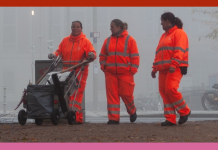Tushar Agarwal, CEO and Co-founder, Hubble, discusses how 2020 broke all the rules around the way society makes life-changing decisions revolving around our proximity to work and how on a macro-level this will fundamentally affect cities, countries and continents
My father was part of the first wave of IT consultants from India, as IT offshoring became all the rage in the 1980s and 90s. This saw me attend 13 different schools in 7 different cities across 3 different countries. Such was the gravitational pull of the workplace, a family of four physically uprooted their entire lives and moved cities nearly every 9 months.
This uprooting had huge and long-lasting effects on our family life. Interestingly, what was drilled into us from a young age was the importance of proximity to the workplace. Every time we moved, my father found an apartment close to his office and close to schools so, in his words, no-one would “waste any time” travelling.
My experience, of course, is a personal one, and my story is relatively extreme. However, it got me thinking a lot about the gravitational pull of the workplace and how the events of the last 12 months have changed the very course of our lives in relation to it.
Zero gravity
At one stage or another, most people have made life-changing decisions that revolve around their proximity to work. Whether that’s where we live, where our kids go to school, or how we spend our spare time, the workplace has played a role at the centre of our solar system. The workplace’s influence on how we allocate huge swathes of our time, energy and resources and our life’s outcomes cannot be understated, which is why the events of the last year feel like a once-in-a-lifetime solar eclipse.
The headwinds of COVID-19 have given birth to an entirely new set of realities in the way we work, and with them the needs of employees and businesses have shifted. 2020 will be remembered as the year when it was proven that most employees can truly work from anywhere. Workers across the globe watched as the familiar attachments to the workplace they’d had their entire career became considerably weaker.
Pre-pandemic, a significant portion of the UK’s workforce rarely worked from home. Only 5% were reported to have worked from home every day and now with most of us once again confined to our dining tables and makeshift offices, the proliferation of people who will have felt an undeniable shift in their perception of the workplace has, in a sense, been the ultimate proof of the fact that flexibility is key.
A continuation of certain trends is very likely as, generally, businesses that aren’t directly affected by the pandemic and lockdowns show evidence of doing well—for many, productivity and employee happiness seems to have remained stable, if not increased. I say “generally”, because I know there is a huge amount of nuance to this, and this was not the experience for everyone. One outcome of the last 12 months will be a shared desire among people to take a far more active role in determining a different balance when the workplace returns to a more dominant position.
Redefining the rules of gravity
As we move towards a ‘new normal’, more pressing questions remain—notably: what will new orbits look like as the future of work continues to shift?
The rulebook around how each organisation’s workforce will operate is being rewritten entirely. What’s becoming clear is that there is no longer a one-size-fits-all solution, and businesses on this journey must quickly become familiar with terms such as “hybrid office strategy”.
The catch is that the debate around what’s next isn’t outlining exactly what “hybrid” actually means for each business, team, and individual. There’s an even greater need to answer questions around not only how employees will want to work going forward, but also what and where the workspaces they occupy will actually take shape.
The sheer size of the office sector and its many interdependencies means that, much like the sun, even small micro-level shifts to its gravitational pull will alter the orbit of everything around it. This applies in particular to the central districts where offices are usually located, and that huge swathes of the economy operate out of. Nearly every sector—from retail to hospitality—who had the advantage of being at the epicentre, where volumes of workers passed through each day, will feel a substantial hit, even with a loss of less than 20% of commuters. Many will be forced to move position or change their strategy—and some will undoubtedly disappear completely.
On a macro-level, this will also fundamentally affect the fabric of entire cities, countries and continents. If employees only need to commute into London once a week, they might consider moving out of London altogether to enjoy a lower cost of living and higher quality of life. Not to mention the 42% of UK employees who would like to work abroad in future. Should this trend come into force, other countries that have felt steep economic declines over the past 50 years—such as the Caribbean or Southern Europe, rich in natural beauty and quality of life but poor in economic opportunity—could stand to gain immensely. Last year, we saw Barbados announce their remote worker visa and Lisbon’s status as a mecca for digital nomads accelerate. It will be interesting to watch who else follows in their footsteps.
A new orbit awaits
The impact of Covid-19 on the world of work will be long-lasting and significant, with formerly niche work practices quickly falling into the mainstream, and the traditional office as we know it fading into history. It’s undeniable that we are now firmly in an era of employee empowerment and flexibility, which will call on businesses and office space providers to adapt accordingly. In the process of this revolution taking shape, we might say that perhaps, the next daughter of an Indian IT consultant won’t move to the UK or the US. Perhaps, instead, she will continue to live in India, will be closer to her extended family and friends, and will have no anxieties over finding a job anywhere in the world. Because she’s now connected to everyone, everywhere, all of the time. Perhaps, she can finally live the American dream from Allahabad.











